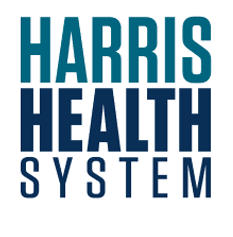Improving Blood Glucose Control With a Computerized Decision Support Tool: Phase 2
| Status: | Recruiting |
|---|---|
| Conditions: | Hospital, Diabetes |
| Therapuetic Areas: | Endocrinology, Other |
| Healthy: | No |
| Age Range: | Any |
| Updated: | 4/2/2016 |
| Start Date: | September 2007 |
| End Date: | December 2018 |
| Contact: | Alan Morris, MD |
| Email: | Alan.Morris@intermountainmail.org |
| Phone: | 801-408-1610 |
Clinical Process Improvement With A Bedside Computerized Insulin Therapy Protocol For Blood Glucose Control (eProtocol-insulin) in Adult And Pediatric Intensive Care Unit Patients-Second Phase (Phase-2): Distribution and Implementation of Validated eProtocol-insulin in Naïve ICUs
The Purpose of this study is to:
1. Introduce the refined, validated, and safe computerized bedside decision support tool
for blood glucose management in critically ill adult and pediatric ICU patients that
was studied in Phase 1 into a second group of naïve ICUs, none of which participated in
eProtocol-insulin development, refinement or validation
2. Monitor how often low blood sugar levels occur during use of the bedside tool.
3. Determine how the computerized tool effects the workload of the ICU nurses.
1. Introduce the refined, validated, and safe computerized bedside decision support tool
for blood glucose management in critically ill adult and pediatric ICU patients that
was studied in Phase 1 into a second group of naïve ICUs, none of which participated in
eProtocol-insulin development, refinement or validation
2. Monitor how often low blood sugar levels occur during use of the bedside tool.
3. Determine how the computerized tool effects the workload of the ICU nurses.
In the current second phase of this project (Phase-2), we will introduce the refined,
validated, and safe eProtocol-insulin into a second group of naïve ICUs, none of which
participated in eProtocol-insulin development, refinement or validation. Our primary goal in
this second phase is to determine the feasibility of exporting this tool to naïve ICU
environments. In this second phase we will also compare the effects of the eProtocol-insulin
and ordinary care approaches to glucose control on the bedside nurse's experience.
This second phase will be a prospective cohort study. We will determine the feasibility of
distributing eProtocol-insulin and will further validate eProtocol-insulin in >4 adult and
>4 pediatric ICUs. If necessary we will modify eProtocol-insulin with an iterative
refinement process, with Institutional Review Board (IRB) and independent Data and Safety
Monitoring Board (DSMB) oversight. eProtocol-insulin will be considered refined if >90% of
the instructions are accepted and if the percent of glucose values between 70 and 110 mg/dl
(3.9-6.1 mMol/L) are equivalent to our Phase-1 refinement and validation experience of 46%%,
and if the rate of glucose values < 40 mg/dl (2.2 mMol/l) is less than 0.5% of glucose
measurements.
validated, and safe eProtocol-insulin into a second group of naïve ICUs, none of which
participated in eProtocol-insulin development, refinement or validation. Our primary goal in
this second phase is to determine the feasibility of exporting this tool to naïve ICU
environments. In this second phase we will also compare the effects of the eProtocol-insulin
and ordinary care approaches to glucose control on the bedside nurse's experience.
This second phase will be a prospective cohort study. We will determine the feasibility of
distributing eProtocol-insulin and will further validate eProtocol-insulin in >4 adult and
>4 pediatric ICUs. If necessary we will modify eProtocol-insulin with an iterative
refinement process, with Institutional Review Board (IRB) and independent Data and Safety
Monitoring Board (DSMB) oversight. eProtocol-insulin will be considered refined if >90% of
the instructions are accepted and if the percent of glucose values between 70 and 110 mg/dl
(3.9-6.1 mMol/L) are equivalent to our Phase-1 refinement and validation experience of 46%%,
and if the rate of glucose values < 40 mg/dl (2.2 mMol/l) is less than 0.5% of glucose
measurements.
Inclusion Criteria:
1. Pediatric ICU: Proposed indications by pediatric clinicians at participating ICUs for
glucose control in their ICUs would include patients who require mechanical
ventilation for greater than 24 hours and/or require a vasoactive infusion (e.g.
dopamine >3 mg/kg/min, dobutamine, epinephrine, or vasopressin).
2. Adult ICUs: Proposed indications by clinicians in participating ICUs for glucose
control in participating adult ICUs include critically ill patients with an
anticipated ICU length of stay of 3 or more days.
Exclusion Criteria:
1. Pregnancy (negative pregnancy test required for females of child-bearing age)
2. Age less than one month
3. Inborn errors of metabolism that the clinician suspects will affect glucose
homeostasis
4. Acute or chronic liver disease with any documented episode of blood or plasma glucose
<60 mg/dl within the 24 hours prior to study entry
5. Diabetic Ketoacidosis (critically ill patients with insulin dependent diabetes not in
ketoacidosis will be eligible if attending physicians intend to use intravenous
insulin as part of ordinary care)
6. Severe chronic liver disease (Child-Pugh score >10)
We found this trial at
10
sites
1 Medical Center Blvd
Winston-Salem, North Carolina 27103
Winston-Salem, North Carolina 27103
(336) 716-2011

Wake Forest University Baptist Medical Center Welcome to Wake Forest Baptist Medical Center, a fully...
Click here to add this to my saved trials
Ohio State University The Ohio State University’s main Columbus campus is one of America’s largest...
Click here to add this to my saved trials
Click here to add this to my saved trials
Click here to add this to my saved trials
Ben Taub General Hospital Located in the heart of the Texas Medical Center, Ben Taub...
Click here to add this to my saved trials
Dartmouth Hitchcock Medical Center Dartmouth-Hitchcock is a national leader in patient-centered health care and building...
Click here to add this to my saved trials
Click here to add this to my saved trials
Click here to add this to my saved trials
The Mount Sinai Hospital Founded in 1852, The Mount Sinai Hospital is a 1,171-bed, tertiary-care...
Click here to add this to my saved trials
Click here to add this to my saved trials



